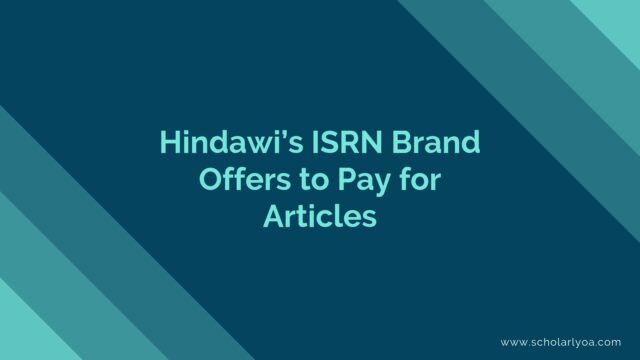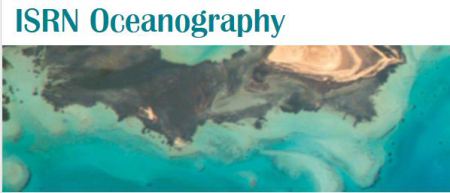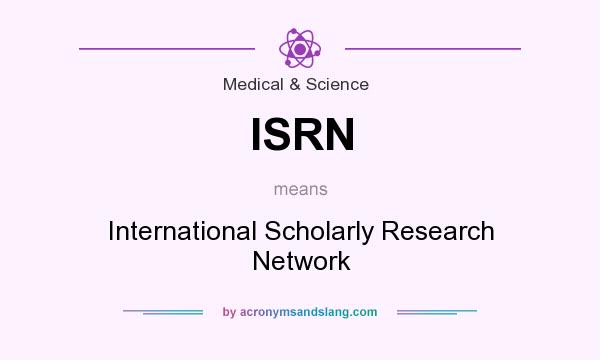
Cairo-based Hindawi Publishing Corporation is apparently launching a new strategy to invigorate its ISRN (International Scholarly Research Network) brand. The strategy involves paying scholars to write papers to help make the brand’s 106 journals more attractive to other potential authors.

Normally, ISRN operates using the author-pays model, charging authors upon acceptance of their articles. These “article processing charges” can cost $1,000 or more.
Hindawi is currently undertaking a spam campaign to solicit articles for the ISRN journals. In emails sent to researchers, ISRN offers to pay $1,000 for each accepted article.
Interestingly, the articles ISRN seeks are review articles with 100-300 citations and at least 10,000 words. They call these “spotlight articles.”
One of these solicitations went to Dr. Colin D. MacLeod, an Honourary Research Fellow at a Scottish University.

The email he received is here. [PDF]
Dr. MacLeod’s analysis of the offer is spot-on:
It turns out that the journal in question is in the process of being launched and as yet has no articles listed on its home pages. This makes me wonder whether this is a new twist on the standard commercial open publishing operation. By inviting, and indeed paying for, review articles from people who are well known (and possibly even respected – whether I am respected in my field or not is up to others to judge!), they can quickly gain a level of acceptability, something that I presume is becoming ever more difficult as more and more people become aware of how much of a scam these journals can be. It might also ensure that the articles are well written, relevant, and therefore, well-cited, helping to provide a higher impact factor.
Thus, it would seem that this would be one way for an OA publisher to gain a level of initial respectability in a given field for a relatively low initial output in comparison to the potential returns. Indeed, if it continued this policy, and had one well-cited, well written, paid for review article in each ‘issue’, it would be a relatively small outlay that could effectively buy respectability and citations – after all reviews tend to be particularly heavily cited – that would be more than covered by the page charges to every other author within that issue.
Potentially, it would also encourage others to submit manuscripts within the reviewed field as it is common to look at where previous papers on the same subject have been published when trying to decide where to publish your own.
Dr. MacLeod notes that Hindawi did not specify the topic of the proposed article or whether he could choose the topic.
The market is becoming saturated with gold open-access publishers. Hindawi is obviously feeling this competition and cleverly wants to take action to increase its article submissions and, therefore, its income.
This is a unique twist on the author-pays model, one we will monitor to gauge its success.
Appendix:






